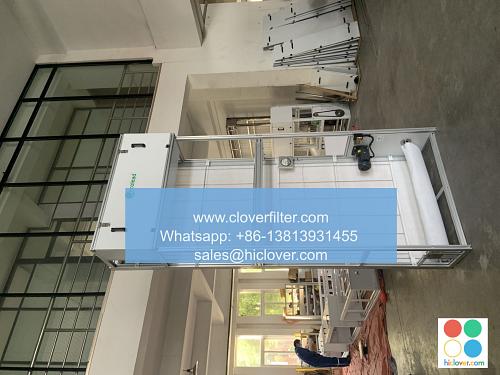The Pros and Cons of Installing Air Filter Converters in Your Car

As the world becomes increasingly polluted, the need for clean air has become a major concern. One way to ensure that the air inside your car is clean and fresh is by installing an air filter converter. These devices are designed to improve air quality by converting pollutants into harmless substances. In this article, we will explore the pros and cons of installing air filter converters in your car, highlighting various application areas and key words such as air purification, car maintenance, and environmental sustainability.
What are Air Filter Converters?
Air filter converters are devices that are installed in your car’s air intake system to convert pollutants into harmless substances. They use advanced technologies such as nanofiltration, UV light, and activated carbon to remove pollutants and improve air quality. These devices are designed to be easy to install and maintain, making them a popular choice for car owners who want to improve the air quality inside their vehicles.
Pros of Installing Air Filter Converters
There are several pros of installing air filter converters in your car. Some of the most significant advantages include:
* Improved air quality: Air filter converters can remove up to 99.9% of pollutants from the air, making it cleaner and fresher for you and your passengers.
* Increased fuel efficiency: By improving air flow and reducing pollutants, air filter converters can increase fuel efficiency and save you money on gas.
* Reduced maintenance costs: Air filter converters can extend the life of your car’s air filter and engine, reducing maintenance costs and saving you time.
* Environmental benefits: By reducing pollutants and improving air quality, air filter converters can help reduce your carbon footprint and contribute to environmental sustainability.
Cons of Installing Air Filter Converters
While air filter converters have several advantages, there are also some cons to consider. Some of the most significant disadvantages include:
* Initial cost: Air filter converters can be expensive to purchase and install, making them a significant upfront investment.
* Limited application areas: Air filter converters are designed for use in cars and may not be effective in other application areas such as homes or commercial buildings.
* Regular maintenance required: Air filter converters require regular maintenance to ensure optimal performance and extend their lifespan.
* Potential for clogging: Air filter converters can clog over time if not properly maintained, reducing their effectiveness and potentially causing damage to your car’s engine.
Conclusion
In conclusion, air filter converters can be a valuable investment for car owners who want to improve the air quality inside their vehicles. While they have several pros such as improved air quality, increased fuel efficiency, and reduced maintenance costs, they also have some cons such as initial cost, limited application areas, and regular maintenance required. By weighing the pros and cons and considering your specific needs and circumstances, you can make an

